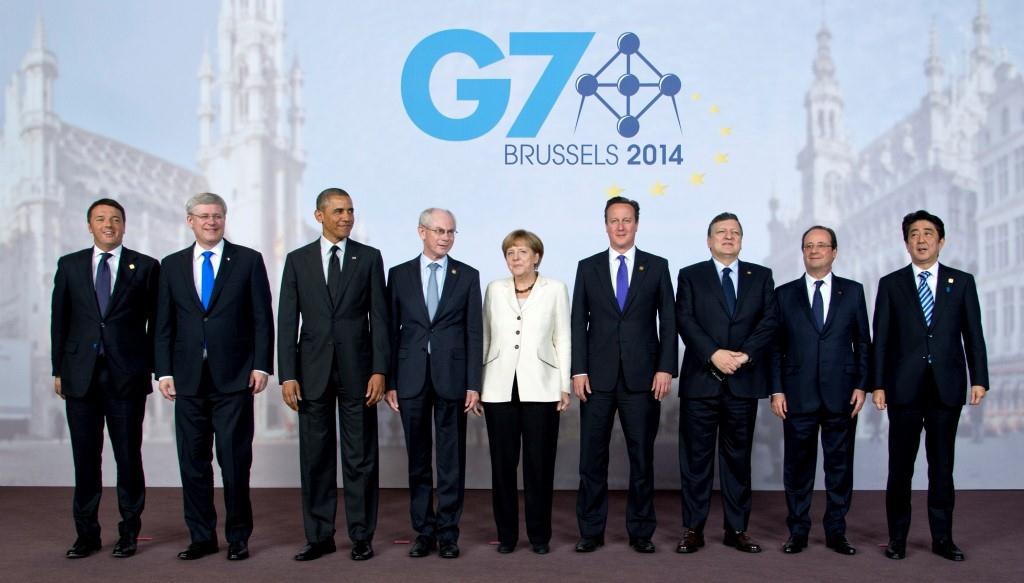The G7 was known as the G6 in the beginning, consisting of Japan, West Germany, France, Italy, UK, and the US. The group was found in the 1975, and the annual meeting is primarily to discuss the economical issues of the world. In 1998. In 1976, Canada became the 7th member. In 1998, Russia joined the group, creating the Group of Eight (G8). Until recently, Russia was kicked out of the group because of the intense political issues surrounding Ukraine. The Western countries want to punish Russia and separate it from the rest of the Western countries. The group is currently known as G7 again.
The main purpose of G7 is to maintain the world's economy and helping countries that are in debt and developing. In 1996, the G7 launched an initiative for the 42 heavily indebted poor countries (HIPC).
In 1999, the G7 decided to get more directly involved in "managing the international monetary system" through the Financial Stability Forum, formed earlier in 1999 and the G-20, established following the summit, to "promote dialogue between major industrial and emerging market countries". In 1999 the G7 announced their plan to cancel 90% of bilateral, and multilateral debt for the HIPC, totaling $100 billion. In 2005 the G7 announced, debt reductions of "up to 100%" to be negotiated on a "case by case" basis. In 2008 the G7 met twice in Washington, D.C. to discuss the global financial crisis of 2007-2010 and in February 2009 in Rome.The group of finance ministers pledged to take "all necessary steps" to stem the crisis.
Many have raised the question whether or not China, India should be allowed to join the Group. They are rapidly growing countries with very robust economies. The G7 consists of countries with highly advanced economies, so why shouldn't China and India be allowed? Evidently, their economies have proven to be one of the best, and China and India's presences in the group would greatly augment the strength of the world economically.
Then again, should they truly be allowed in the Group? More members means more ideas, which, consequently, would lead to more debates and arguments, leading to extenuating time needed to come to a consensus.


No comments:
Post a Comment